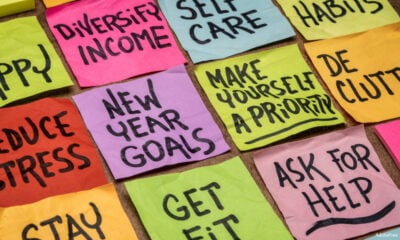Education
Is A Recession The Right Time For A Career Move?

Your job isn’t working out but is a career move the right thing to do in a recession? Of course, there is no right or wrong answer. What’s going on with you and the business you work for will determine your next course of action. In saying this, you want to be in control of what happens to you, so let’s look at how you can decide which action to take, i.e., stay with it or move on.
How were you feeling about your job before the pandemic? When arriving at a significant crossroads, you need to know whatever path you choose; it’s taken based on accurate sound information and due to being emotionally charged in some way.
Life But Not As We Know It
COVID-19 has shaken us to our core and turned our lives upside down. While it would be ideal to brush it off and get back to normal, i.e., back to work, etc., unfortunately, this isn’t an option. Dealing with change is challenging.
People who control their destinies know how to adapt to change and push through barriers to get what they need. These very same people have spent lockdown resetting their goals; they are not about to just ‘wing it’ and let change happen to them. They will cause change to navigate their way to a career move; it makes sense, i.e., the timing is right.
Neither workers nor business owners have an easy road ahead as an economic slowdown bumps most countries into a recession – which may dip further and into a global depression.
For workers turning up for work and not knowing if their job is safe is unnerving. If this could be you, what’s wrong with taking back control and assessing if you’re where you should be or if you need to make a career move?
In this blog article, we look at the steps to working out if changing careers during a recession is a good move.
Dealing with Change
The starting point to making a big decision in your career is to acknowledge how you feel about your current role, your employer, and the industry. If you’re in an industry that isn’t going to see a lot of growth for some time, hanging in there is likely to be the wrong decision.
A lot of what happens to us is out of our hands, so when we get the news we weren’t expecting, we react to it using our past experiences. The older we get, the better we are at hiding or managing our emotions – however, the feeling is still there, so you’ll need to let it out when you can later on. Engage in physical and mental activities to remove stress. You won’t be making sound career decisions if you’ve got lots of built-up tension; your emotions will likely get the better of you.
HBR says to get better at dealing with a significant event, you must remove your emotion, and a way to do it is to use humour. Also, avoid mentioning your feelings, rather, discuss issues or problems and focus on the future, not the past. Now you know how to deal with change by taking control of your emotions, let us see if a career move is a positive step in a recession.
Is there such a thing as job security?
If thoughts of job security are holding you back from leaving your job, then think again as there is no such thing. Job security is a myth and there really is no such thing as a job for life.
Last In, First Out
On the flip side, starting a new job with a different organisation during a recession is also risky because there is no job security. Most businesses find trading conditions harsher in a downturn, so no job is safe. There is a saying last in, first out for a good reason; it’s often how a company weighs up who to let go when they need to make staff redundant.
Training, Skills and Experience
Remaining employable requires an ongoing commitment to learning new skills, keeping up with training certifications, and gaining more experience. The perfect way to be in control of what happens to you in your career is to remain ’employable’ and valuable. You’ll know if this is you from the unsolicited approaches from recruitment firms throughout your career.
Working on yourself and what you have to offer employers should always be uppermost in your mind. Even when you’re in the ideal job, the unexpected can happen, and it just did with Coronavirus and the economic downturn. Therefore work on your soft and transferrable skills and always keep your resume aka CV up to date.
As we’ve seen with the pandemic, travel, tourism, and hospitality are industries doing really well, and now they’re not. Hundreds if not thousands of people have lost their jobs. However, there have been some positive outcomes, with many workers switching industries seamlessly.
Employers with job vacancies have quickly realised the value of transferrable skills, for example, airline staff from pilots and cabin crew to baggage handlers finding various roles in FMCG with relative ease.
Work On Your networking
Another way to remain in control, so moving to a new career is your choice is to strengthen your networks. In times of need, your network can support you as well as potentially introduce you to a prospective employer.
A lot of startups set up during recessions as a sort of soft opening, and someone in your network may just know of an Entrepreneur with the next big idea.
Summary
Never assume you have a job for life, but that you can always have a career. You’re in control of what you do next, and if you’re working on your skills and training and you’re adaptable to change, nothing can stop you from getting what you want and when you want it, even the perfect job in a recession.






